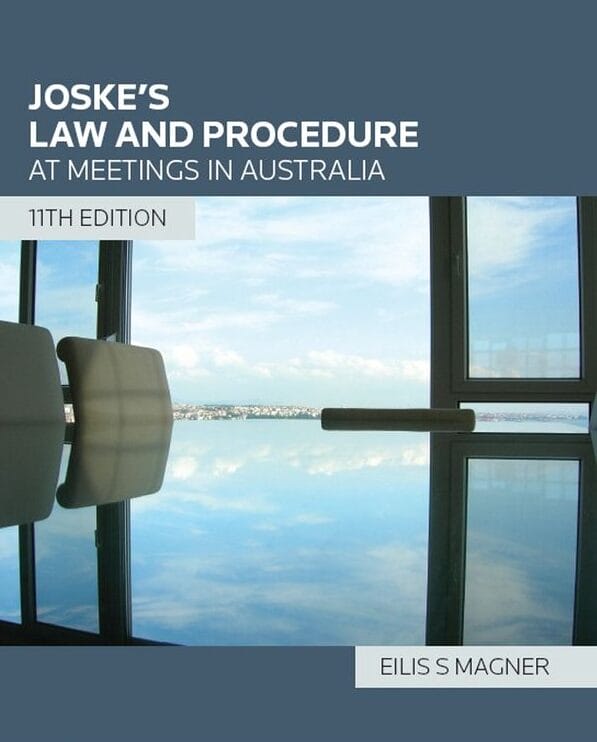As I delved into the intricacies of constitutions and grievance procedures in my previous article, I find it pertinent to delve into Joske’s Law and Proceedings at Meetings in Australia. Originally published in 1938 by the Honourable Sir Percy Joske CMG, a judge of the Commonwealth Industrial Court and the Supreme Court of the Australian Capital Territory and the Northern Territory, this work stands as a cornerstone in meeting procedure jurisprudence. Sir Percy’s exhaustive exploration of the subject spanned his lifetime, culminating with his passing on 26 April 1981. The text, now in its 12th edition, continues to be updated and published.
Numerous conflicts within incorporated associations, Clubs, and companies stem from inadequate or mismanaged meeting processes and procedures. The book meticulously examines the diverse sources of law governing meetings in Australia, including common law, the Corporations Act 2001 (Cth), and statutory laws across Australian jurisdictions.
Encompassing topics such as meeting convocation, notice requirements, quorum, procedural guidelines, minutes, and the ramifications of irregularities in proceedings, this publication serves as an invaluable resource for meeting participants in Australia.
Organized into three logical parts, each incorporating current legislation and recent case law updates: Part I expands on the common law principles and standard meeting procedures; Part II delves into meeting laws within a corporate framework, incorporating important provisions of the Corporations Act 2001 (Cth); and Part III provides a comprehensive overview of statutory laws governing meetings of unit title and strata title companies nationwide.

Drawing from my extensive experience in corporate and association settings over the years, I have frequently consulted Joske’s Law to clarify legal situations and principles. It remains a go-to reference, especially during contentious issues. I have also recommended the book to numerous Club committees and boards, with many incorporating it into their libraries for future reference.
For those with a penchant for legal intricacies, Joske’s Law offers a captivating read. However, for others, it may appear daunting unless seeking solutions to specific issues. Regrettably, the book is priced as a legal textbook, approximately $160.
Therefore, for initial inquiries regarding committee or board meeting procedures and minutes, a more economical option may be to reach out via email or phone. Contact John Dickson via email or 0417 721 942.




